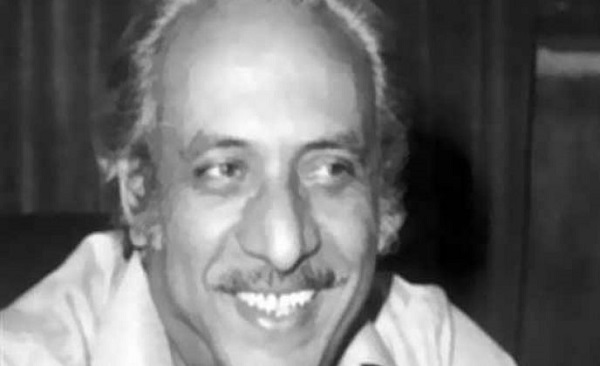Salah Abdel Sabour 1931-1981
Salah Abdel-Sabour is indeed a pioneer of the modern Arabic poetry. Together with Badr Shaker Assayab in Iraq, Al Mala’ika in Palestine, Abdel Mo’ti Hegazy in Egypt and other Arab poets, they laid the foundation of a new school of Arabic poetry. They formulated their own experience in new authentic, creative patterns.
Although this trend remained modernist all through, it maintained an intimate attitude towards national heritage original Arabic taste.
Abdel Sabour himself was a follower of the free art which viewed art as an expression of unbridled imaginativeness, true, vehement emotions, within a highly romantic context.
He believed that genuine poetry could be written only through absolute self-communion.
At the end of the article he remained faithful to his own principles all through his life until his death on August 14, 1981.
Born in May 1931, Salah Abdel-Sabour obtained B.A (Arabic Language), at Cairo University in 1951, as secondary school student, he showed a noticeable interest in languages, literature and politics. He also took part in popular demonstrations against British occupation, and in 1949 he was arrested at the age of 18.
Abdel-Sabour showed an interest in literature in his early life, tended to poetry from his father, who had attempted during his youth to write poetry, and later taught his son rhetoric. Abdel-Sabour started writing verses at the age of 13.
In his early youth, he tried to find, for literature, a new significance beyond rhetoric eloquent expression, attending to approach other realms of arts such as music and painting. He was so happy when he found himself face to face with such great men of letters as Taha Hussein, Ahmed Amin, Ibrahim Nagui. He was a teacher, while in the teaching profession, he co-edited "Al Thaqafa" (Culture) magazine, until January 1953, where he wrote several poems and short stories. In 1954, he had his poem" Melancholy" published in Al-Adab (Letters) magazine.
In 1957, his first collection of poems "People in My Country" was published, shooting the poet into fame, so far than any other poet in the Arab world.
In 1981, his second collection "I am saying to you", and his third "Dreams of an Ancient Knight" in 1964.
According to most of his critics, including those in disagreement with him, these poems reached highest peaks never achieved by modern poetry.
Abdel-Sabour's literature was not confined to poetry, but rather extended to poetic drama. Within a period of ten years, he had five poetic plays published. The first was "The Tragedy of Al-Hallaj (1965), for which he was granted the State Incentive Award for Theatre in 1966.
Abdel Sabour’s poetic dictum have several sources, some of which were derived from sophism, the Holy Qur’an, the Bible as well as philosophical, historical or folkloric origins.
In addition to poetry and poetic drama, the great poet also practiced critical writing. In literary studies, he issued 14 books, wherein he reviewed Arabic and international, old and modern literary heritage, including various literary genres.
He also tackled many intellectual and art issues in a broad human context. He paid special attention to contemporary Egyptian thought. He also contributed in writing critical essays to Rose El Youssef and Sabah El Kheir Magazines and Al Ahram daily.



